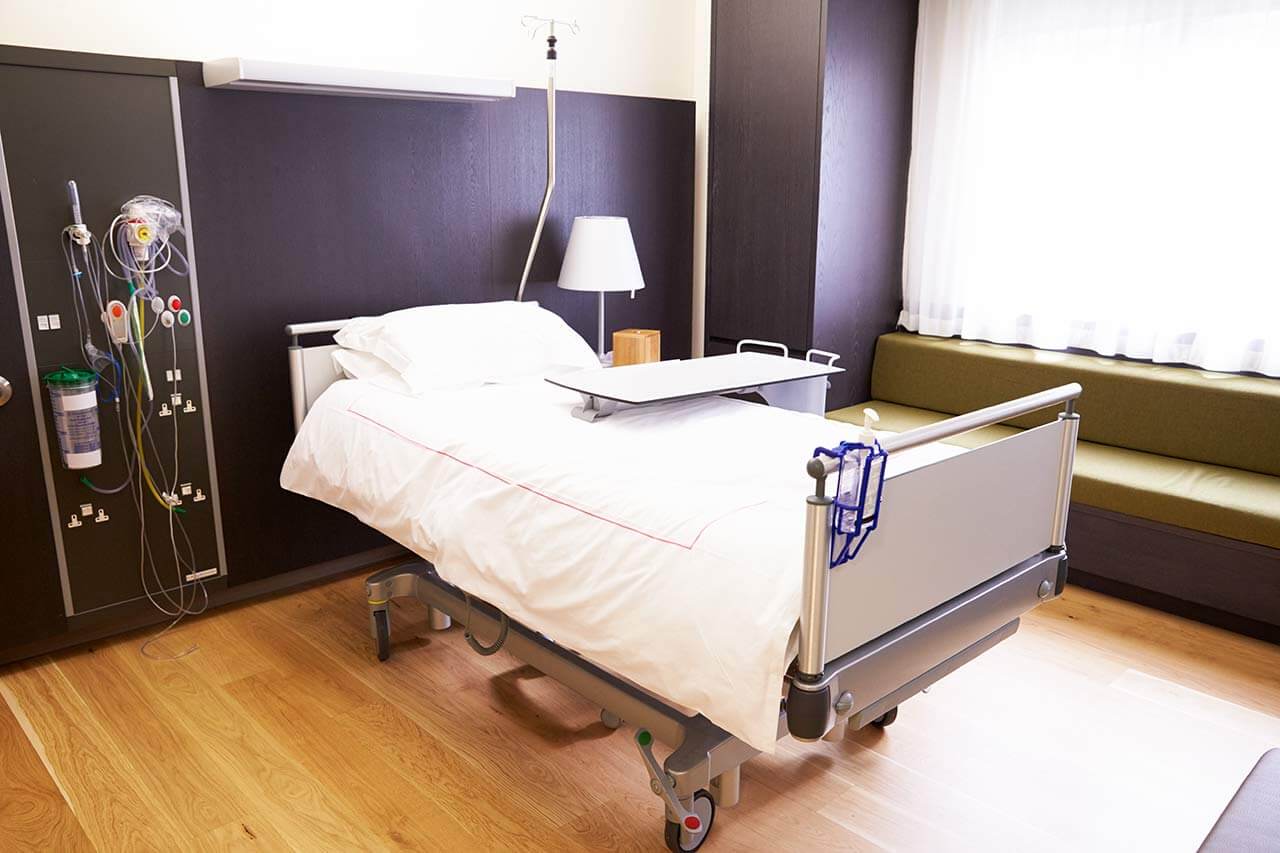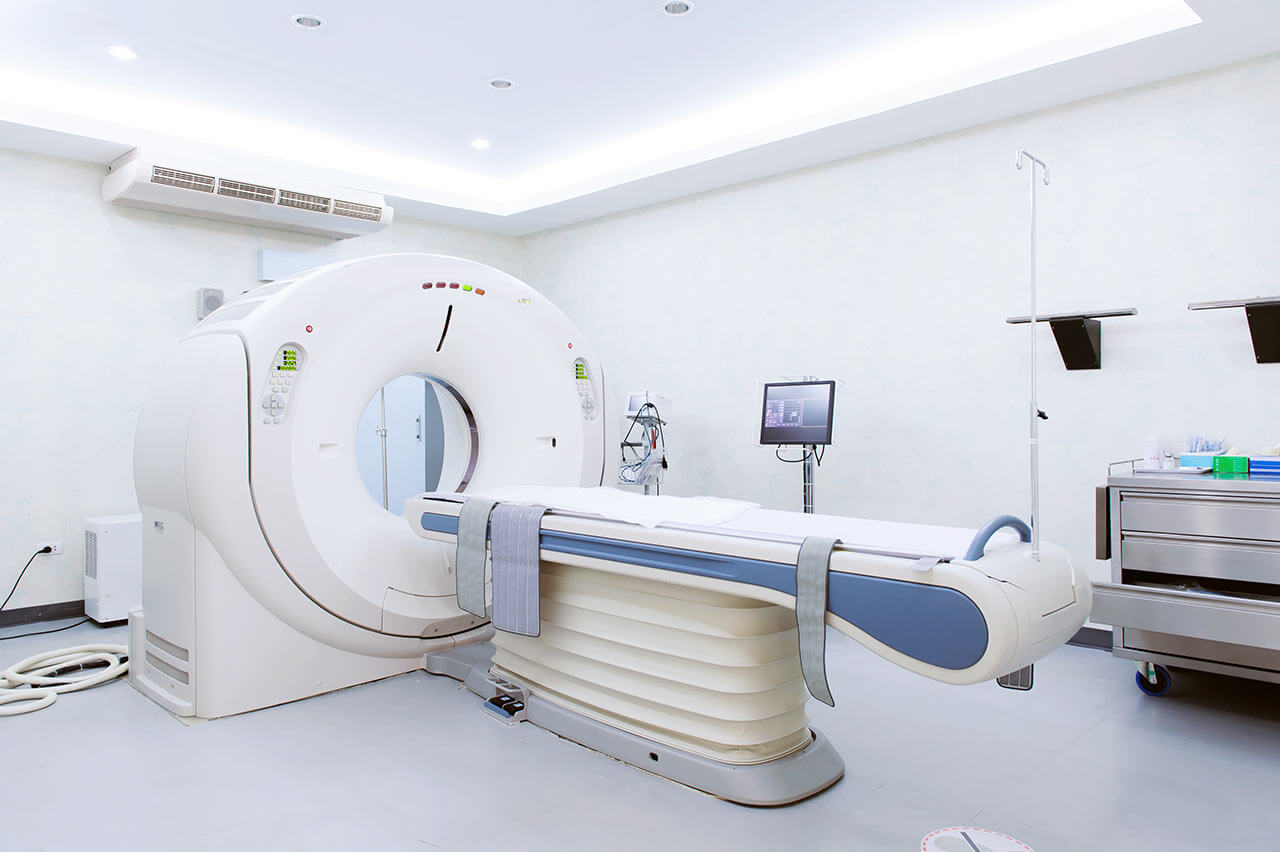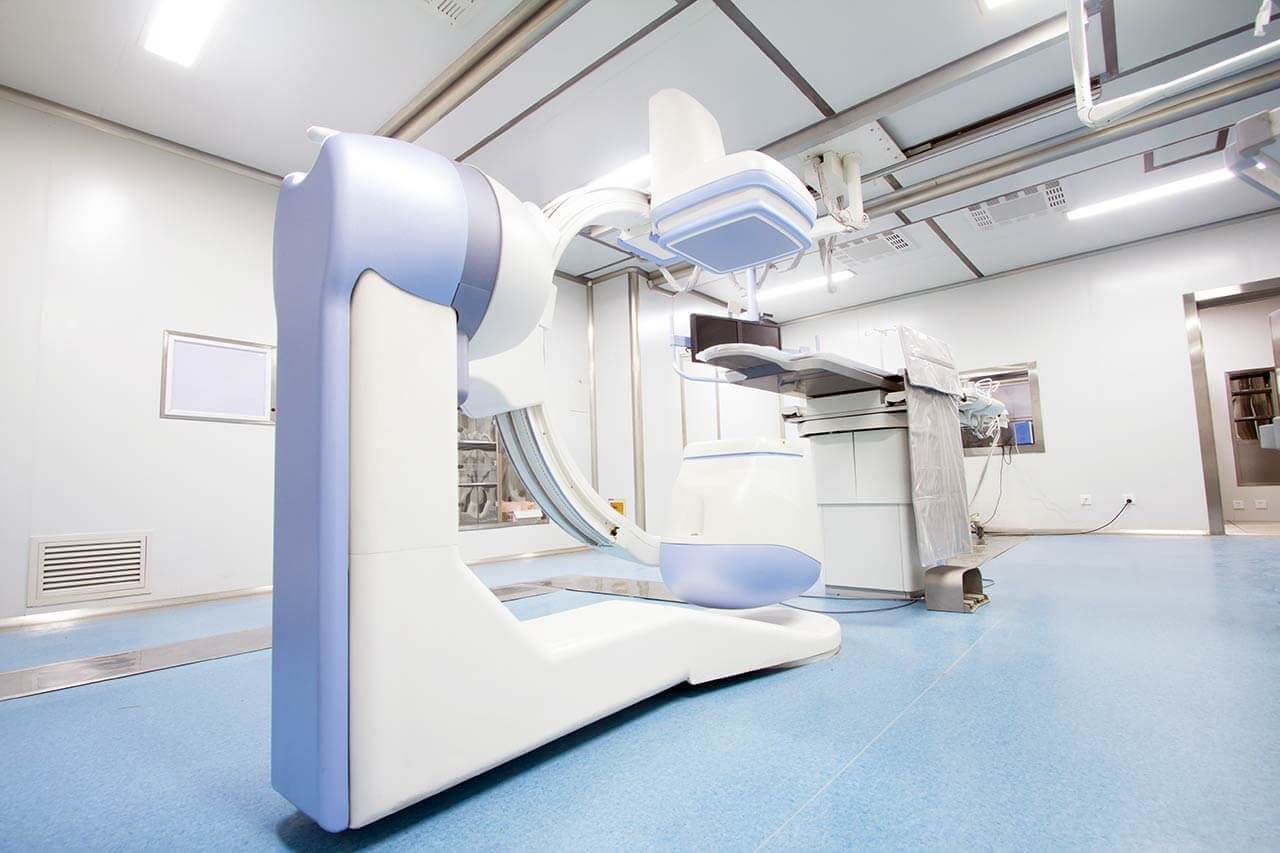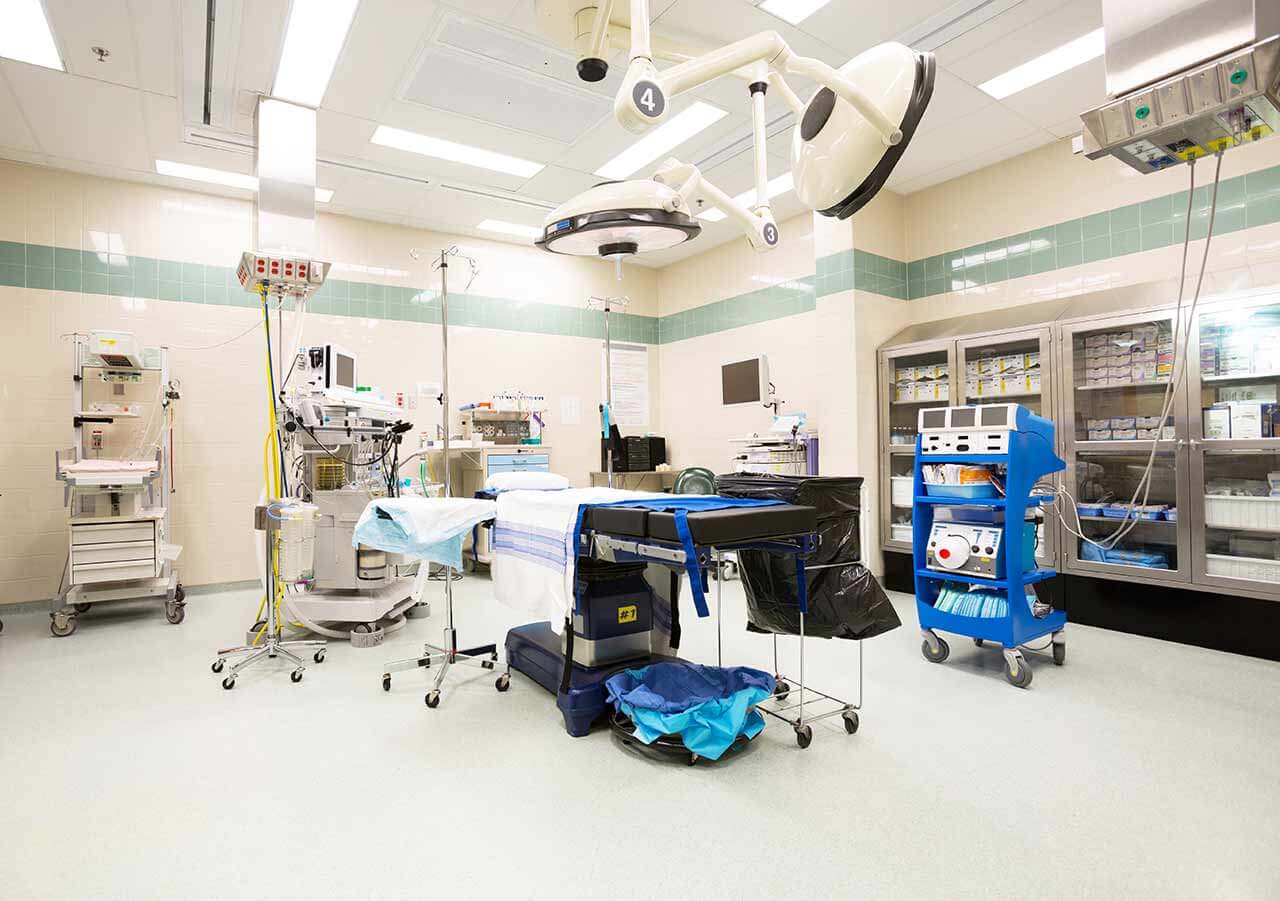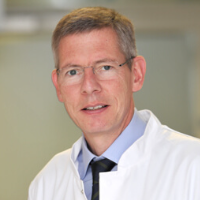
The program includes:
- Initial presentation in the clinic
- clinical history taking
- review of medical records
- physical examination
- laboratory tests:
- complete blood count
- general urine analysis
- biochemical analysis of blood
- autoimmune tests
- analysis of tumor markers
- PSA
- inflammation indicators
- indicators blood coagulation
- cystoscopy with biopsy
- pelvic/ abdominal ultrasound
- consultation of related specialists
- symptomatic specific treatment
- the cost of essential medicines and materials
- nursing services
- control examinations
- full hospital accommodation
- developing of further guidance
Required documents
- Medical records
- Kidney US (if available)
- MRI/CT scan (if available)
Service
You may also book:
 BookingHealth Price from:
BookingHealth Price from:
About the department
The Department of Nephrology at the Charite University Hospital Berlin provides the widest range of medical services in its specialty. The main focus of the department is the treatment of patients with kidney diseases and arterial hypertension. The department's team of doctors also provides intensive care for kidney diseases and critical conditions associated with kidney lesions. In addition, the specialists of the medical facility provide services in preparation for kidney transplant surgery and comprehensive care after this surgical procedure. The department houses a highly specialized Center for Rare Kidney Diseases (CeRKiD), whose physicians have extensive experience in the treatment of atypical hemolytic uremic syndrome, C3 glomerulopathy, C3 glomerulonephritis, Alport syndrome, and other rare nephrological pathologies. The pride of the department is the modern Dialysis Unit, which offers all types of renal replacement therapy available in modern medicine: hemodialysis, hemofiltration, hemodiafiltration, peritoneal dialysis, plasmapheresis, and others. Patients are treated by highly competent physicians with many years of clinical experience, for whom the patient and his individual needs always come first. The Head Physician of the department is Prof. Dr. med. Kai-Uwe Eckardt.
The department's primary specialty is the treatment of acute and chronic kidney failure. Acute kidney failure is a sudden disruption of the filtration, secretory, and excretory functions of the kidney. In the case of chronic kidney failure, the doctors are faced with the task of finding out the cause of the development of the pathological condition, since it is usually a complication of another disease, for example, sepsis, glomerulonephritis, heart failure, urinary tract obstruction due to urolithiasis, etc. When choosing treatment tactics, the department's doctors are guided by the cause of the development of the pathology and its severity. Patients in critical condition are indicated for treatment in the intensive care unit. Many cases of the disease require dialysis, renal replacement therapy. In the presence of mechanical obstruction of urine outflow, surgical treatment is the option of choice.
The decline in kidney function in chronic kidney failure is gradual and can last from several months to several years. Because this is an irreversible decline in kidney function, timely medical attention is critical to the success of treatment. When developing a treatment plan, doctors first determine the cause of chronic kidney failure in order to direct therapy to treat the underlying kidney disease. In most cases, the goal is to improve kidney function, but in advanced stages, the focus is on preserving the remaining function of the organ. The first line of treatment is drug therapy, the second is renal replacement therapy, and the third is kidney transplantation.
The department is one of the most competent medical facilities in Germany for the treatment of rare and genetically determined kidney diseases. It houses a highly specialized center (CeRKiD), whose specialists treat atypical hemolytic uremic syndrome, C3 glomerulopathy, C3 glomerulonephritis, Alport syndrome, autosomal dominant tubulointerstitial kidney disease, von Hippel-Lindau disease, Fabry disease, tuberous sclerosis, distal renal tubular acidosis, and other conditions. The physicians of the department have the necessary knowledge, professional skills, and resources for the effective treatment of patients with the above-mentioned nephrological diseases.
The major clinical focuses of the department include the following:
- Diagnostics and treatment of acute and chronic kidney failure
- Diagnostics and treatment of glomerulonephritis
- Diagnostics and treatment of electrolyte imbalance
- Diagnostics and treatment of diabetic nephropathy
- Diagnostics and treatment of polycystic kidney disease
- Diagnostics and treatment of rare kidney diseases
- Atypical hemolytic uremic syndrome
- C3 glomerulopathy
- C3 glomerulonephritis
- Alport syndrome
- Autosomal dominant tubulointerstitial kidney disease
- Von Hippel-Lindau disease
- Fabry disease
- Tuberous sclerosis
- Distal renal tubular acidosis
- Diagnostics and treatment of systemic diseases with kidney lesions
- Vasculitis
- Autoimmune diseases: systemic lupus erythematosus, systemic scleroderma
- Infectious diseases: hepatitis viruses, HIV
- Oncopathology: tumor lysis syndrome, multiple myeloma, renal cell carcinoma
- Sarcoidosis
- Diabetes mellitus
- Arterial hypertension
- Hepatorenal syndrome
- Cardiorenal syndrome
- Diagnostics and treatment of arterial hypertension
- Diagnostics and treatment of other kidney diseases
The range of therapeutic services offered by the department includes the following:
- Drug therapy
- Renal replacement therapy (dialysis)
- Hemodialysis
- Peritoneal dialysis
- Hemofiltration
- Hemodiafiltration
- Ultrafiltration
- Plasmapheresis
- Immunoadsorption
- Bilirubin adsorption
- Lipid apheresis
- Intensive care
- Comprehensive care before and after kidney transplant
- Other medical services
Curriculum vitae
Higher Education and Postgraduate Training
- 1978 - 1984 Medical studies, Westphalian Wilhelms University of Muenster, Germany and Welsh National School of Medicine, Cardiff, UK.
- 1984 State Medical Examination, Westphalian Wilhelms University of Muenster, Germany.
- 1985 Thesis defense, Institute of Genetics, Westphalian Wilhelms University of Muenster, Germany.
- 1993 Habilitation in Physiology, Faculty of Natural Sciences III, University of Regensburg.
Professional Career
- 1985 - 1987 Residency: Bundeswehr Hospital in Osnabrueck, Germany; Institute of Pathology at the Westphalian Wilhelms University of Muenster, Germany; Hannover Medical School, Germany.
- 1987 - 1993 Experimental research: Institute of Physiology, University of Zurich, Zurich, Switzerland; Institute of Molecular Medicine, University of Oxford, Oxford, UK; Institute of Physiology, University of Regensburg, Germany.
- 1993 - 2000 Physician, Department of Nephrology, Charite University Hospital Berlin.
- 2000 - 2003 Professorship in Internal Medicine and Nephrology, Charite University Hospital Berlin.
- 2004 - 2017 Professorship for General Internal Medicine and Head Physician, Department of Nephrology and Hypertension, University Hospital Erlangen.
- 2004 - 2017 Head of Transplant Center Erlangen-Nuremberg, University Hospital Erlangen.
- 2009 - 2017 Vice-Rector for Research, Faculty of Medicine, Friedrich Alexander University of Erlangen-Nuremberg.
- Since 2017 Professorship for Internal Medicine and Head Physician, Department of Nephrology, Charite University Hospital Berlin.
Clinical Interests
- Causes and complications of chronic and acute kidney diseases.
- Intensive care for kidney diseases.
- Kidney transplantation.
Prizes, Awards, and Honors
- 2001 Fellowship, European Molecular Biology Organization (EMBO).
- 2001 Scholarship, German Research Foundation (DFG).
- 2001 Franz Volhard Prize, German Society of Nephrology (DGfN).
- 2004 International Medal, National Kidney Foundation, USA.
- 2011 Garabed Eknoyan Award, National Kidney Foundation, USA.
Memberships in Professional Societies and Organizations
- Since 2022 Member of the National Academy of Sciences Leopoldina.
- Since 2015 Member of the Academy of Sciences and Literature in Mainz.
Photo of the doctor: (c) Charité – Universitätsmedizin Berlin
About hospital
According to the reputable Focus magazine, the Charite University Hospital Berlin ranks 1st among the best healthcare facilities in Germany!
The hospital is one of the largest and leading university medical complexes in Europe, and also consistently holds leading positions in the international medical arena. The Charite operates on the basis of the Faculty of Medicine of the Free University of Berlin and the Humboldt University of Berlin. Patients are offered modern diagnostics and treatment with the very latest methods, many of which were developed by professors and scientists of the medical complex. More than half of all German Nobel Prize winners in medicine and physiology, such as Emil von Behring, Robert Koch, and Paul Ehrlich, studied and worked at the Charite University Hospital Berlin. The medical complex includes more than 100 specialized departments and institutes, which helps to ensure that patients receive care in all existing medical specialties. The hospital has exceptional experience in treating complex clinical cases.
Each year, the hospital treats more than 137,800 inpatients and more than 787,700 outpatients. The hospital has a bed capacity of 3,293 beds. A huge medical team consisting of 5,670 scientists and doctors and more than 6,000 nurses work for the benefit of the patients. The main task of all specialists of the medical facility is to restore the patient's health or save his life in critical cases. The hospital has a friendly atmosphere where every patient feels care, respect and empathy.
The Charite University Hospital Berlin is generously funded by the German government, which is why it offers patients the latest generation of excellent equipment and comfortable infrastructure. The Charite medical complex is equipped with da Vinci robotic surgery systems, laser technologies, equipment for endovascular catheter-based interventions, neuronavigation devices, intraoperative monitoring systems, equipment for proton therapy available only in the most advanced medical centers in the world, and many other technologies. All these resources, combined with the experience and professional skills of the hospital's doctors, are the key to providing the most effective and safe treatment in accordance with the highest international medical standards.
The hospital is recognized with a huge number of quality certificates, including DIN EN ISO 9001:2015, certificates from the German Cancer Society (DKG), the German Society for General and Visceral Surgery (DGAV), the German Society for Thoracic Surgery (DGT), the German Hernia Society (DHG), and the ERAS Society.
The Charite University Hospital Berlin is a benchmark in the European healthcare system. Patients therefore receive impeccable medical service, quality care, and personalized service that puts the patient and their individual needs first.
Photo: (с) depositphotos
Accommodation in hospital
Patients rooms
The patients of the Charite University Hospital Berlin live in comfortable rooms made of modern design. Each room is equipped with an ensuite bathroom with a toilet and a shower. The standard room furnishing includes an automatically adjustable bed, a bedside table, a wardrobe for storing clothes, a table and chairs for receiving visitors, and a TV. If desired, Wi-Fi access can be provided. The hospital also offers enhanced-comfort rooms.
Meals and Menus
The patient and his accompanying person have a daily choice of three menus. If for any reason, you do not like the food, you will be offered an individual menu. Please inform the medical staff about your dietary preferences before the treatment.
Further details
Standard rooms include:
Religion
Religious services are available upon request.
Accompanying person
During the inpatient program, an accompanying person may stay with you in a patient room or at the hotel of your choice.
Hotel
During the outpatient program, you can live at a hotel of your choice. Managers will help you to choose the most suitable options.
The hospital offers a full range of laboratory tests (general, hormonal, tests for infections, antibodies, tumor markers, etc.), genetic tests, various modifications of ultrasound scans, CT scans, MRI and PET / CT, angiography, myelography, biopsy and other examinations. Treatment with medications, endoscopic and robotic operations, stereotaxic interventions is carried out here, modern types of radiation therapy are also used. The hospital offers patients all the necessary therapeutic techniques.
- Proton therapy
- CyberKnife treatment
- Hyperthermic intraperitoneal chemotherapy (HIPEC)
- PSMA therapy with Lutetium-177
- Joint replacement in adults and children
These are oncological diseases, benign neoplasms of the brain and spinal cord, heart valve defects, diabetes mellitus and its complications, joint diseases and other pathologies.
- Neurosurgery
- Oncology
- Plastic and reconstructive surgery
- Interventional radiology
- Proton therapy (Proton Therapy Center BerlinProtonen)
The medical team includes more than 4,225 highly qualified scientists and doctors.
